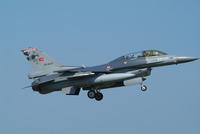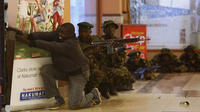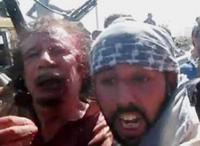-
9/11 terror network in U.S. was never fully dismantled, still a threat
A joint inquiry co-chaired by a former senator has warned that the American network that supported and trained the 9/11 hijackers was never fully dismantled, and that it remains a threat, pending the release of a secret report from the era. Former Senator. Bob Graham (D-Florida) points out that a 28-page section from the “Joint Inquiry into Intelligence Community Activities Before and After the Terrorist Attacks of September 11, 2001” was classified under President George W. Bush and remains so under President Barack Obama.
-
-
FDA proposes rules to prevent terror attack on U.S. food supply
Food terrorism could have drastic economic effects. A DHS risk assessment discovered that should a pathogen like foot-and-mouth disease be introduced to Great Plains ranchers, total damages would exceed $50 billion, affecting U.S. beef exports and dramatically reducing consumer demand for beef products.In order to prevent or reduce the risk from a potential terror attack on the nation’s food supply, the FDA proposed new rules to the Food Safety Modernization Act (FSMA).
-
-
Turkey shoots down Syrian military jet

Turkish fighter jets on Sunday shot down a Syrian warplane after it violated Turkey’s airspace. The Syrian military confirmed the incident, saying the plane was downed in Syrian airspace while strafing rebel positions. Syrian state TV described the incident as a “blatant aggression,” and said the pilot safely ejected from the aircraft. In 2012 Turkey changed its rules of engagement after Syria shot down a Turkish military plane, saying that any Syrian military plane approaching the Turkish border would be treated as a legitimate target.
-
-
Belfast court denies bail for former IRA commander accused of 1972 killing
Ivor Bell, 77, a former Irish Republican Army (IRA) commander accused of abducting and killing Jean McConville, 37, a mother of ten, in 1972, on Saturday was denied bail in a Belfast court. Prosecutors said the break in the case came as a result of information found in the recordings of Boston College’s oral history project which interviewed Northern Ireland paramilitary fighters involved in the long sectarian conflict there. The interviews were taped on the understanding that they would not be made public during the lifetimes of the subjects, but last year a U.S. court granted police in Northern Ireland access to the recordings.
-
-
Kenyan security forces hobbled by lack of funds

Kenya may be facing a heightened risk from regional terrorism, but security forces in Kenya are hobbled by glaring underfunding due to government corruption and mismanagement. The Anti-Terror Police Unit in Nairobi, the main force set up to combat terrorist acts, has only $2,205 for its operations during the first quarter of the year — coming to just $735 for March. In comparison, an average parliamentary salary is around $45,000 for the same period.
-
-
The Qatar organizers of the 2022 Soccer World Cup are tied to terrorist groups
Qatar bribed FIFA officials so they would vote to award it the 2022 Soccer World Cup. In addition to the likely corruption investigation, FIFA is also grappling with the question of the temperature in Qatar in the summer. Several state football associations, and many medical specialists, said that the summer heat in Qatar is such that it would be dangerous for players to play for ninety minutes, and risky for spectators to sit in the stands during games. Now news has emerged that leading figures inthe Qatar World Cup committee are supporters of terrorism, contributing millions of dollars to al Qaeda and its affiliates in Iraq, Syria, and Yemen.
-
-
KSM: al Qaeda’s strategy is war of attrition to force U.S. out of Islamic lands
In one of the only statements he has made since his capture in 2003, Khalid Sheikh Mohammed, the accused mastermind of the 9/11 terror attacks, has said al Qaeda is in “a war of attrition” with the United States. He made the statement during a 27 February interview with U.S. defense attorneys for Osama bin Laden’s son-in-law, Suleiman Abu Ghaith, who is facing conspiracy charges in a U.S. federal court in New York. Mohammed said the primary operational goal of al Qaeda was to provoke the United States into futile, expensive, and bloody wars, thus advancing a strategic aim of forcing U.S. and Western retrenchment from Islamic lands. “Every state of emergency declared and every change of alert level that inflicts specific procedures on the military and civilian sectors costs the country millions of dollars. It is enough that the U.S. government has incurred losses upwards of a trillion dollars in the wars it has waged in the aftermath of 9/11, the bleeding of which continues to this day,” Mohammed said.
-
-
Post-Qaddafi Libya needs more international support: study

The international community’s limited approach to postwar Libya has left the nation struggling and on the brink of civil war, according to a new study from the RAND Corporation. Libya’s most serious problem since 2011 has been a lack of security, which has undermined efforts to build functioning political and administrative institutions, further constricted an already minimal international footprint, and facilitated the expansion of criminal and jihadist groups. The lack of security stems primarily from the failure of the effort to disarm and demobilize rebel militias after the war.
-
-
Synthetic biology makes bioweapons easier to make
Scientists and policy makers are no longer unconditionally promoting scientific innovation for fear that current and future biological breakthroughs may lead to dangerous applications. Traditionally, government-backed institutions and pharmaceutical firms fueled biological innovation, but today, the barriers that limited innovation to those institutions are diminishing. The low cost and significantly reduced level of necessary expertise have provided anyone interested in developing biological technology the tools to do so. Synthetic biology, the design and engineering of biological devices and systems, has given terrorists the capability to launch attacks using synthetic organisms without detection.
-
-
Libyan PM escapes country after assembly ousts him over oil tanker fiasco
Libya’s General National Congress has approved a no-confidence motion against Prime Minister Ali Zeidan and designated the defense minister as acting prime minister. Zeidan left Libya after the vote, in all likelihood for Italy. The no-confidence vote came after a North Korean-flagged tanker named Morning Glory managed to sail away from the port of al Sidra, carrying 234,000 barrels of crude oil from rebel-held oil fields. Last summer, armed militias in east Libya took over most of the country’s oil fields – and also three ports, with partial control of a fourth — bringing oil exports, which had amounted to 1.6 million barrels a day, to a halt. U.S. describes oil sale by the militias as “theft” from the Libyan people.
-
-
FERC orders development of physical security standards for transmission grid
The Federal Energy Regulatory Commission (FERC) on Friday directed the North American Electric Reliability Corporation (NERC) to develop reliability standards requiring owners and operators of the Bulk-Power System to address risks due to physical security threats and vulnerabilities.
-
-
Allowing Terrorism Risk Insurance Act to expire could hurt national security: Study
The current terrorism risk insurance program has a $27.5 billion threshold for aggregate losses that are paid by the insurance industry and commercial policyholders before the government program begins paying. The program will expire in 2014 and Congress again is considering the appropriate government role in terrorism insurance markets. Allowing the federal terrorism risk insurance act to expire could have negative consequences for U.S. national security, according to a new study from the RAND Corporation.
-
-
Gangbangin' in Syria: Two L.A. gang members in Syria to defend Assad regime
About a hundred Americans have gone to Syria to take part in the war, all of them — with the apparent exception of two L.A. gang members named “Creeper” and “Wino” — to fight on the side of the Sunni rebels against the Alawite Assad regime. In a video recently posted on YouTube, the two are shown brandishing AK-47s and firing at an unseen enemy. Their tattoos identify one of them as a member of Sureños-13, which is affiliated with the Mexican mafia, and the other as a member of Westside Armenian Power gang. They tell the camera they are “in Syria, gangbangin’.”
-
-
Too much too young? Teaching children about violent extremism
Dealing with the rise of homegrown terrorism has prompted governments to take novel approaches in combating such threats. The U.K. government, for example, has recently pushed for schools to teach children as young as four about the dangers of violent extremism. One counter-radicalization strategy adopted by the U.K. government is Prevent, which has been used effectively in British secondary schools. Prevent has in the past been viewed with suspicion, however, particularly by British Muslim communities, as Prevent funding has previously been tied directly to the number of Muslim schools in an area. What Australia can learn from the British example is ensuring that certain communities do not feel alienated. Instead, any attempts at education should focus on the problem of radicalization as a whole.
-
-
Israel intercepts ship carrying Syrian missiles from Iran to Gaza
In its most daring – and logistically demanding –military operation in about a year, Israeli naval commandos earlier yesterday (Wednesday) intercepted an Iranian arms ship in the Red Sea, more than 900 miles from Israeli shores. The ship was carrying dozens of Syria-manufactured M-302 medium-range missiles from Iran to Islamic Jihad in the Gaza Strip. The M-302 missile would have dramatically increased the capabilities of militant organizations in Gaza. It carries a warhead of 150 kg and has a range of about 300km.
-
More headlines
The long view
How Male Grievance Fuels Radicalization and Extremist Violence
Social extremism is evolving in reach and form. While traditional racial supremacy ideologies remain, contemporary movements are now often fueled by something more personal and emotionally resonant: male grievance.
